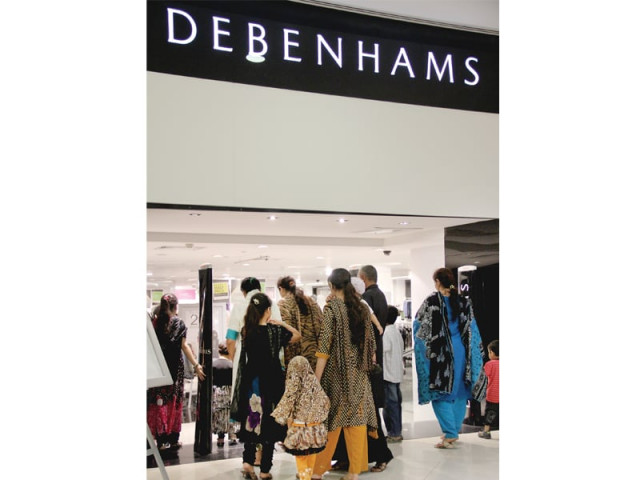‘Colonising’ our markets: Global brands and their impact on Pakistan
A globalising media increasingly influences how we think about and manage our buying and spending.

Our economy is growing at a mere 3.5% on average, yet our nation continues to spend beyond its means, mostly through credit cards – accumulating more debt than ever before in times of financial distress.
Meanwhile, a globalising media continuously influences how we think about and manage our buying and spending. Mainstream brands with a worldwide presence are making tons of money in the third world, due to an ever-growing demand for expensive western jewellery, consumer goods and fancy fashion brands.
Some of these brands have done what others have not: successfully used social media like Twitter and Facebook to woo buyers from across the world. This speaks volumes of their sales and revenues in countries like Pakistan, where unaccounted for wealth and excessive spending results in higher profits for these companies than ever before.
If you do a simple price survey at a local shopping mall, second tier brands – which are not exactly ranked very highly in global indices – are being sold in our markets at first tier prices. Debenhams, Nine West and Mango have recently opened their outlets in Karachi and Lahore. The shops sell nothing priced at less than Rs5,000 rupees, having targeted a clear niche in which only high-powered buyers with tons of cash and credit can indulge in impulsive shopping.
Fewer than 2% of all Pakistanis today can afford such luxury brands. Local brands like Amir Adnan, Aijazz, Maria B and others have repeatedly slashed prices in order to ensure that their products reach a larger market, as rational consumers do not spend a disproportionate amount of their income on clothing.
Merchant outlets of foreign brands, however, do not cut prices as easily. They have to meet higher retail costs and operating expenses, and all expenses have to be paid for in local currency. They have entered our markets to make profits, not distribute charity: therefore, they continue charging staggering premiums from their buyers.
A significant factor helps these brands: Pakistanis love to emulate the west by buying and importing western brands. We do not wear products made in our own country, as they are widely – often unjustifiably – perceived to be inferior in quality. This is a mental state the Pakistani consumer finds difficult to shrug off: we think a global brand is far superior to one of our own.
Western brands love to exploit this trend to their advantage. They skip the effects of a recession, as their sales in our markets rely on niches not affected by it. They are lured into our markets with promises of higher tax benefits, rely on the locals accumulating debt to pay for their products, and then repatriate profits out of the country.
This needs to change. Marketing and branding should be about pricing and convenience. It should be stylish to be smart about savings, and stupid to be reckless and exhibitionist. Consider the case of McDonalds in Pakistan. The brand has created its place in our society by introducing a simple Rs100 value meal, which includes a burger and a soft drink. This price makes a lot more sense for the average Pakistani buyer than, let’s say, if the brand had insisted sticking with a Rs500 meal with extra fries.
We need to break with our affinity for artificial lifestyles and understand our economic constraints. We need to be real about buying power and spending habits during these economically turbulent times. Benefits must go to the buyer, rather than to the company. In this regard, the media must play the important role of educator and informer.
Perceptions rule reality. Our media must now move forward and project local brands as desirable and equal in quality to their international counterparts. We have to learn to see beyond negatives: well-priced can also be stylish!
THE WRITER IS A BANKER AND RADIO BROADCASTER WHO COMMENTS ON INTERNATIONAL RELATIONS AND POLICY
Published in The Express Tribune, August 13th, 2012.



















COMMENTS
Comments are moderated and generally will be posted if they are on-topic and not abusive.
For more information, please see our Comments FAQ